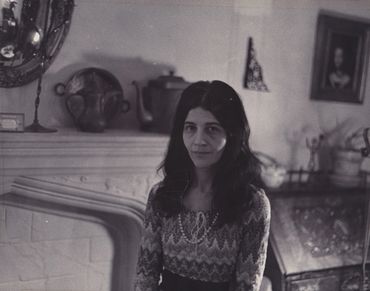June 8, 1930 – July 16, 2009
Edith Wyschogrod was an influential philosopher of religion, author, professor, and scholar.

SELECTED WORKS
Spirit in Ashes: Hegel, Heidegger, and Man-Made Mass Death
Contemporary phenomena of mass death―such as Hiroshima and Auschwitz―have brought with them the threat of annihilation of human life. In this provocative and disturbing book, Edith Wyschogrod shows that the various manifestations of man-made mass death form a single structure, a “death-event,” which radically alters our understanding of language, time, and self.
Saints and Postmodernism: Revisioning Moral Philosophy
"In this exciting and important work, Wyschogrod attempts to read contemporary ethical theory against the vast unwieldy tapestry that is postmodernism. . . . [A] provocative and timely study."—Michael Gareffa, Theological Studies
An Ethics of Remembering: History, Heterology, and the Nameless Others
What are the ethical responsibilities of the historian in an age of mass murder and hyperreality? Can one be postmodern and still write history? For whom should history be written? Edith Wyschogrod animates such questions through the passionate figure of the "heterological historian." Realizing the philosophical impossibility of ever recovering "what really happened," this historian nevertheless acknowledges a moral imperative to speak for those who have been rendered voiceless, to give countenance to those who have become faceless, and hope to the desolate.
Crossover Queries: Dwelling with Negatives, Embodying Philosophy's Others
“Crossover Queries brings together important essays on a remarkable range of topics by one of our most insightful cultural critics. Commenting on philosophical and theological issues that have shaped the recent past as well as scientific and technological questions that will preoccupy us in the near future, Wyschogrod consistently alerts us to the urgency of problems whose importance few recognize. To avoid the challenge these essays pose is to avoid responsibility for a future that appears to be increasingly fragile.”―Mark C. Taylor
Emmanuel Levinas: The Problem of Ethical Metaphysics
Edith Wyschogrod presents the first full-length study in English of the important contemporary French philosopher Emmanuel Levinas. Dr. Wyschogrod’s extensive discussion of Levinas's relation to Judaism, especially his use of literature from the Torah and other religious writings, will be of interest to religious scholars. The author compares Levinas’s thought with that of his contemporaries, most notably Jacques Derrida and Husserl.
The Enigma of Gift and Sacrifice: Perspectives in Continental Philosophy
What does it mean to give a “gift”? In this timely collection, distinguished anthropologists and philosophers explore an enigma that has disturbed contemporary philosophers from Marcel Mauss to Jacques Derrida. Edited by Edith Wyschogrod, Jean-Joseph Goux, and Eric Boynton.
Video
Edith Wyschogrod at MIND & REALITY: A MULTIDISCIPLINARY SYMPOSIUM ON CONSCIOUSNESS, Columbia University, February 2006.
Photo Gallery






Michael Wyschogrod
Edith Wyschogrod's husband, Michael Wyschogrod, was also an influential philosopher.
Copyright © 2019 Wyschogrod Estate - All Rights Reserved.